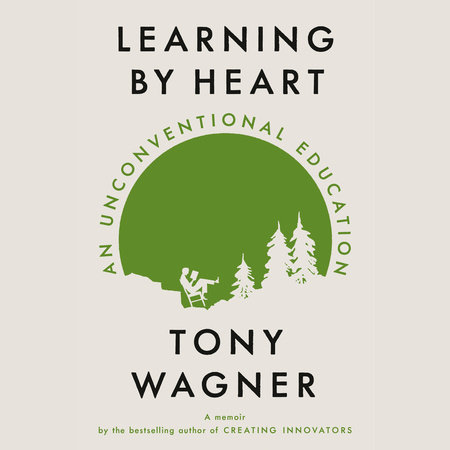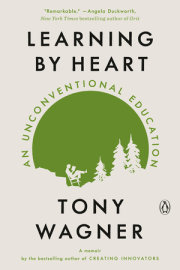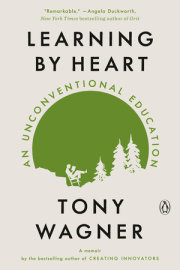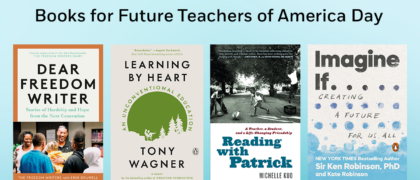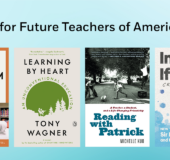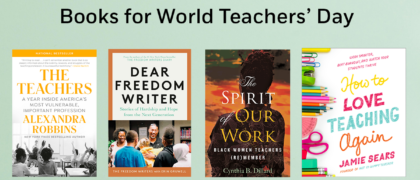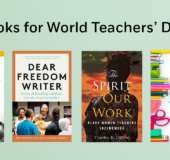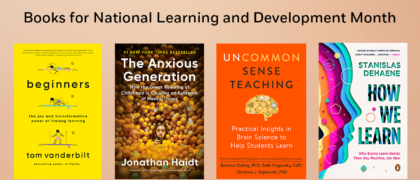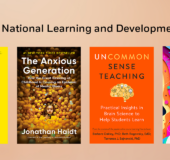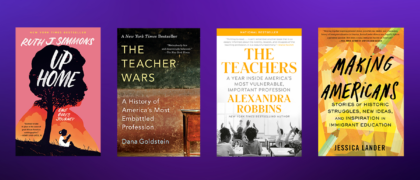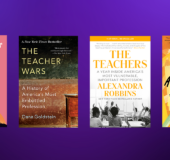One
The Dropout
When i talk to people who have pleasant memories of their school years, they rarely mention the classes they took. Those who remember school fondly are far more likely to recall it as a time in their life when they had fun with friends. Or they excelled at a sport or joined in an extracurricular activity that excited them. Almost invariably, they say classes were easy for them, and so they got along with their teachers and brought home good grades that pleased their parents.
For many students-those for whom school is hard for whatever reason, or who are not popular or good athletes-school is tedious at best, torturous at worst. I was such a student. School for me was a giant jigsaw puzzle with many hundreds of tiny pieces-a puzzle that came with no picture to guide me or tell me how it was all supposed to turn out. I was lost.
From first through sixth grade, I went to a small, coeducational private day school half an hour's drive from where my family lived. I have only hazy memories of my classes and teachers there-things scrawled on the blackboard that we were told were important for us to know; heavy, dull textbooks that had to be lugged to and from school every day. What I remember most vividly was being an outlier. Most of the other kids were from the suburbs, and they saw each other frequently, after school and on weekends. But not me. We lived too far away. And so during recess, I wasn't invited to join in their play. I mostly just watched from the sidelines.
I was also slow to learn to read. Some kids naturally learn much later than others, and then, all too often, parent anxiety and teacher pressure fester and turn a late reader into an insecure learner. For several years, my mother dragged me to a tutor once a week. Mrs. Gray was patient and warm, unlike my teachers at school, and by fourth grade I was proficient. But the beginner reading books, organized by level of difficulty, and the assigned textbooks bored me, and I took no pleasure in reading them. I liked the smell of the blue ditto sheets, fresh off the mimeograph machine, that were sent home with us every night, but I hated doing the same math problems over and over. They were even worse than the reading assignments. I didn't do the homework most of the time.
About a year or so after I'd really gotten the knack of reading, I fell in love with it just for pleasure. At first it was a series of books called We Were There. Each book was a fictional retelling of a real historical event featuring one or more kids as the main characters. I don't remember where I got the first one, but it took me awhile to get into it. By the age of eleven or so, I was reading most every night-for myself, not for school.
I trekked the Oregon Trail, fought at the Battle of Gettysburg, dumped tea at the Boston Tea Party, nearly froze to death with Admiral Byrd at the South Pole. But it was the books about World War II that most captivated me: I'd watched, horrified and helpless, as the Japanese Zeros screamed out of the sky and bombed our fleet at Pearl Harbor; I ate bugs to survive in the jungle during the Battle of Bataan; I charged ferociously at the German pillboxes above the beaches of Normandy.
I went on to read about the different ground campaigns of the war. The German general Erwin Rommel, known as the Desert Fox, fascinated me by the way he kept sneaking around the desert, attacking the British, then slipping away. Then I got interested in battles between big ships. I begged my parents to let me watch Victory at Sea, a TV documentary that each week depicted a different naval engagement of the war, using original film footage. The program always closed with the first verse of "The Navy Hymn":
Eternal Father, strong to save,
Whose arm hath bound the restless wave,
Who bidd'st the mighty ocean deep
Its own appointed limits keep;
Oh, hear us when we cry to Thee,
For those in peril on the sea!
The music gave me shivers and made me feel sad. All I felt when they sang the hymns at our little Episcopal church each Sunday was impatience for the service to be over. I tried to imagine what it must have been like to be on a destroyer, manning a gun under fire from a Japanese battleship, terrified that a kamikaze would fly into us.
I knew what I would have done if I'd been in the war. I'd have been a fighter pilot, like my dad. In We Were There at the Battle of Britain, I flew a Spitfire and blew the German Messerschmitt Bf 109s and the Focke-Wulf Fw 190s out of the sky as we battled for air supremacy to save Britain from invasion. After finishing that story, I sought out others about aerial combat during World War II. I learned the names, armament, and performance characteristics of every fighter plane that fought in the war. I wondered which was best: the American P51 Mustang or the British Spitfire. The P51 was faster and had more guns, but the Spitfire was much more maneuverable, like a sports car.
On my father's bureau, I had seen a small silver-framed photograph of him wearing his officer's uniform and standing next to the nose of his Spitfire. There was so much that I wanted to ask him-not just about his plane, but what it had really been like to be in the war. Like so many World War II vets, though, he rarely talked about his experiences.
I did get some answers many years later when, at the age of seventy, Dad sat down to write a short account of his war experiences, "for his children and grandchildren," he said.
The outbreak of the war in Europe in 1939 found my father selling insurance, taking a few courses at Johns Hopkins University, and playing golf. "My school and college record was spotty at best," he wrote. "My life was golf and good times."
His other passion was flying.
While he had only three hours' experience in a friend's small private plane and had never soloed, he wanted to join the Army Air Corps. But he didn't have the required college degree, and there was a year's wait. At a Labor Day party in 1941, my father met a former Royal Air Force pilot and asked for help. It turned out that the RAF was desperate for pilots-having lost so many in the Battle of Britain the previous year-and so in November 1941, at the age of twenty-one, my father found himself as the only American cadet in a British Flying Training School. Of the sixty pilots in his cohort who graduated and received their wings, only half survived the war.
My father graduated at the top of his class, although he'd cheated on his Morse code exam, he confessed. Because all plane communications were by radio then, he never saw the point of learning it.
After serving as a flight instructor for several months and surviving a midair collision that required him to bail out over the Bristol Channel, Dad was offered his choice of assignments. He asked to be posted to the Forty-first Squadron because they were flying one of the hottest fighter planes of the war-the legendary Spitfire MkXII. For the next several years, he flew numerous offensive and defensive "sorties"-"scrambling" to chase after German fighter planes, escorting bombers on runs over France, strafing ships and locomotives, getting shot up by antiaircraft guns and limping back to base. His pilot's log reads like a script for a classic World War II movie:
"Cover for bombers at Abbeville; Hugh Parry hit."
"Rear cover for 300 B17s returning from Paris area; about 50 FW190's about; saw one of our own Spits shot down in flames."
"Typhoons [a British single-seat fighter-bomber] at Le Havre bounced by six FW 190's; mixed with them; we got two."
"Met nine ME109's and FW190's head-on with 20 more above over Abbeville; Tom Spack and Dick Hogarth missing; Sargent Fisher shot up, claimed one 190 destroyed."
Despite the daily horror and constant danger, it was the happiest time of his life, my father once admitted to me. He was doing something that he loved-and doing it very well.
Four days before D-Day, he was shot down off the coast of German-occupied Guernsey in the English Channel.
"I sat in my dinghy all day long . . . two airborne life boats were dropped by a special air-sea rescue squadron, only to blow away beyond my reach," he wrote in his memoir. "Finally, at dusk, the Germans sent a French fishing boat out to get me. As I stepped ashore in Guernsey harbor, a German officer saluted me and said, in broken English, 'For you, the war is over.'''
He spent the last year of the war in Germany at an infamous POW camp called Stalag Luft 1. Something that kept him going there, he told me in one of the rare moments when he talked about his war experiences, was his dream of owning a farm.
After Dad returned home in June 1945, he persuaded the girl who had spurned him before the war to marry him. I was born the following July and spent the first year of my life at Spook Hill Farm, my parents' new home in rural Maryland. One of my favorite pictures in the family album is of me dressed in a snowsuit, being held close by my beaming dad.
I rarely saw him smile beyond the borders of that photograph. Farming was hard work and there was no money in it, as my father was soon to discover, and he and his new bride had been raised in privilege. The daughter of a mining engineer turned successful stockbroker, my mother had grown up on a large estate in Middleburg, Virginia-fox hunting country. She had gone to Sarah Lawrence, then one of the most elite and progressive women's colleges, for three years. They were both unaccustomed to doing with less. So he sold the farm and took a string of jobs as a professional fund-raiser, and we moved from place to place: Baltimore to Buffalo to Indianapolis to Princeton to Baltimore again. My mother had to manage the moves while taking care of me and my younger sister and brother.
Country life was in my father's blood, though, and so when I was six, he bought another farm in Maryland. This time, he had a full-time tenant farmer run the place while he commuted daily to Baltimore, where he had formed an investment group to buy underperforming companies, turn them around through better management, and then sell them at what he hoped would be a profit.
Noon's Delight, as the new farm was called, encompassed rolling grassy hills dotted with patches of green woodland, all sweeping down to an intimate, emerald valley. A stream called Piney Run snaked along the valley floor, sometimes fast, sometimes slow. Glints of sunlight sparkled on the spots of swift water, while in the slow pools, beneath the shade of an ancient oak, wary fish lurked. And throughout all the fenced hillside pastures and in the valley, our herd of Black Angus mooed and munched their way through the day. For the next six years, the farm was my work, my play, my solitary sanctuary from school.
My father left early and came home late, and weekends were for golf. I think he may have been more enamored of the pastoral fantasy of living as landed gentry on an "estate" rather than the reality of running a farm. My mother wasn't involved with the farm work. She spent much of her day carpooling kids to school and managing the household, though she always found time to read, dabble in photography and watercolor, and occasionally play the piano or listen to her favorite opera. Earle, the resident farmer who lived with his family in a small house in one corner of our valley, did all of the work, with a little help from occasional hired guys, his kids, and me.
Besides our herd of cattle, we had a few of most every kind of critter, and my job was to trudge down to the big white clapboard barn every night to feed the hungry hordes. Pigs, horses, our two Great Danes, the chickens, of course, and those damned geese, which my father had named after his least favorite sister-in-law and her husband. Get too close to them, and they'd nip you with their sharp beaks.
After feeding time, I'd flick off the light switch and linger as inky darkness crept across the valley, watching the animal shadows root and chew, listening to their snorts and grunts, feeling the heat rise from their bodies on cold nights. Walking slowly back to the house, to face that night's homework, I craned my neck to see the endless sky sparkling with stars. The Milky Way, solar systems, galaxies, the universe-what were they, how did they get there? I had so many questions.
Haying was the hardest chore. The bales were huge and heavy-too much for me to lift-but I could roll them into piles of three or four, making it quicker work for the guys coming along in the wagon. It was always hot and humid in haying season. After only an hour out in the fresh-cut pasture, I'd be soaking wet, with itchy, loose strands of straw sticking to my skin. There was often no stopping, as thunderstorms frequently sneaked up over the hills in the late afternoon, and all the hay had to be picked up and brought to the barn before the rain came on. I'd ride on top of the bales on the last wagon back, wrung out and parched, half delirious with exhaustion, but proud.
When I wasn't needed to help with the haying, my time was my own, and the farm was my cosmos to discover.
I hiked the hills with my dog, Smutty, to see what was beyond, only to find more hills, more woods, and more pastures on distant farms. I ventured into the hardwood forests and clambered up a rocky outcropping so I could look down through the ash and maple canopies beneath me and wonder what lived there in the spooky shadows.
Then, sweaty from my explorations, I scrambled down the hillside to the valley where the stream meandered, splashing in the waist-deep pools of icy, blue-green water. I dammed the flow in the shallows, watching it forge new rivulets around my sticks and rocks. Finally, worn out from my adventuring, I lay back on the grassy bank and watched islands of white clouds drift slowly across a lazy sky.
Copyright © 2020 by Tony Wagner. All rights reserved. No part of this excerpt may be reproduced or reprinted without permission in writing from the publisher.

